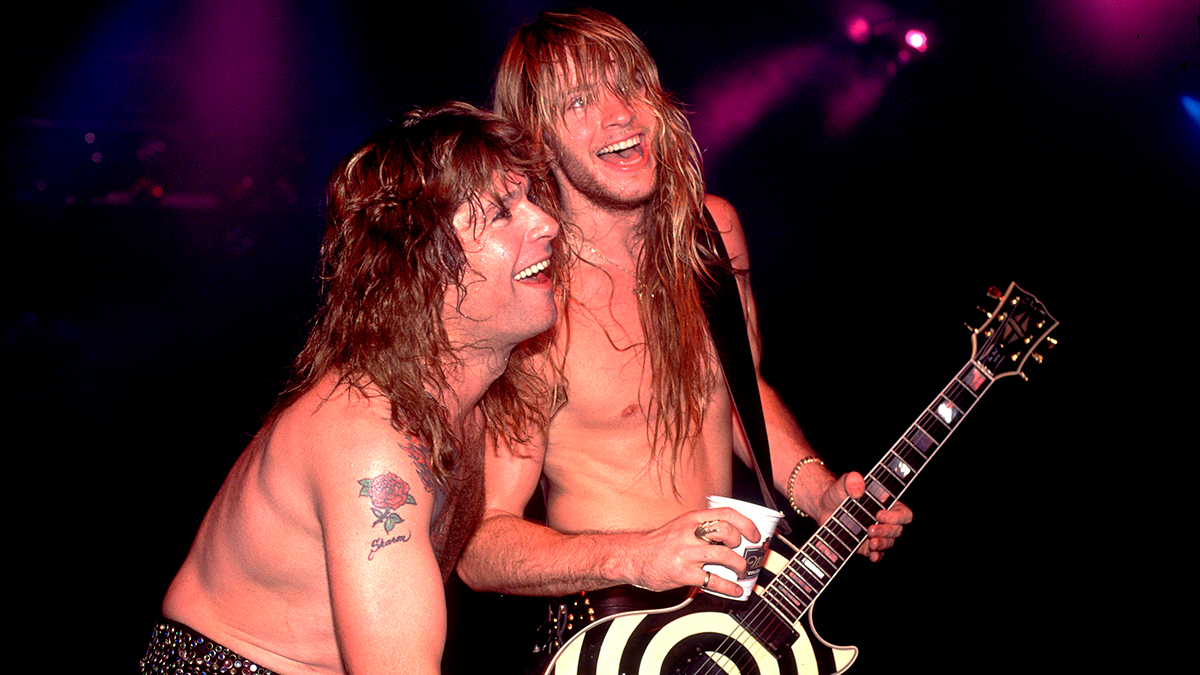
Richie Faulkner has issued an update on his recovery, saying he’s feeling “very strong and positive” after receiving life-saving open-heart surgery less than two months ago.
The Judas Priest electric player, who suffered an aortic aneurysm onstage during the band’s Louder Than Life Festival set on September 26, was recently discharged from hospital, and revealed in a statement that he’s “walking well and moving freely”.
And, in a show of just how well his recovery is currently going, Faulkner also says he’s “playing guitar everyday”, and speculated he’ll be back on stage in no time thanks to everyone’s support and “the inspiration that I get from the guitar”.
In a post to the Judas Priest social media account, Faulkner said, “Hello there maniacs! I just wanted to post, and I’ve had many of you asking for an update on how my recovery is going.
“I was able to return home from hospital 10 days after my surgery to continue recovery at home. It has now been seven weeks since the night it all happened and I’m feeling very strong and positive,” he continued. “My incisions have healed very well and I can definitely see the light at the end of the tunnel.
“I’m walking well and moving freely, I’m pretty active and I’m starting cardiac therapy very soon. I’m playing guitar everyday, and with the love and support of my family, the continued support from you guys and the inspiration that I get from the guitar, I’ll be back on stage in no time!
“My surgeons are very pleased with my progress and have all reserved front row tickets for the next Priest show. It’s Thanksgiving this month, and whether you celebrate it or not, I have a lot to give thanks for this year; Including all of you for your patience, your love and your support."
All the latest guitar news, interviews, lessons, reviews, deals and more, direct to your inbox!
After suffering the onstage aneurysm, Faulkner was rushed to a hospital that was only four miles, with cardiothoracic surgeon Dr. Siddharth Pahwa saying, "Mr. Faulkner is alive today because the stars aligned.
"He had an outstanding emergency care team, he was close to a world class heart center, and he was quick to recognize he needed help."
At the time, Faulkner was told that "people with this don’t usually make it to the hospital alive”.

Matt is the GuitarWorld.com News Editor, and has been writing and editing for the site for five years. He has a Masters in the guitar, a degree in history, and has spent the last 19 years playing everything from blues and jazz to indie and pop. During his GW career, he’s interviewed Peter Frampton, Zakk Wylde, Tosin Abasi, Matteo Mancuso and more, and has profiled the CEOs of Guitar Center and Fender.
When he’s not combining his passion for writing and music during his day job, Matt performs with indie rock duo Esme Emerson, and has previously opened for the likes of Ed Sheeran, Keane, Japanese House and Good Neighbours.
